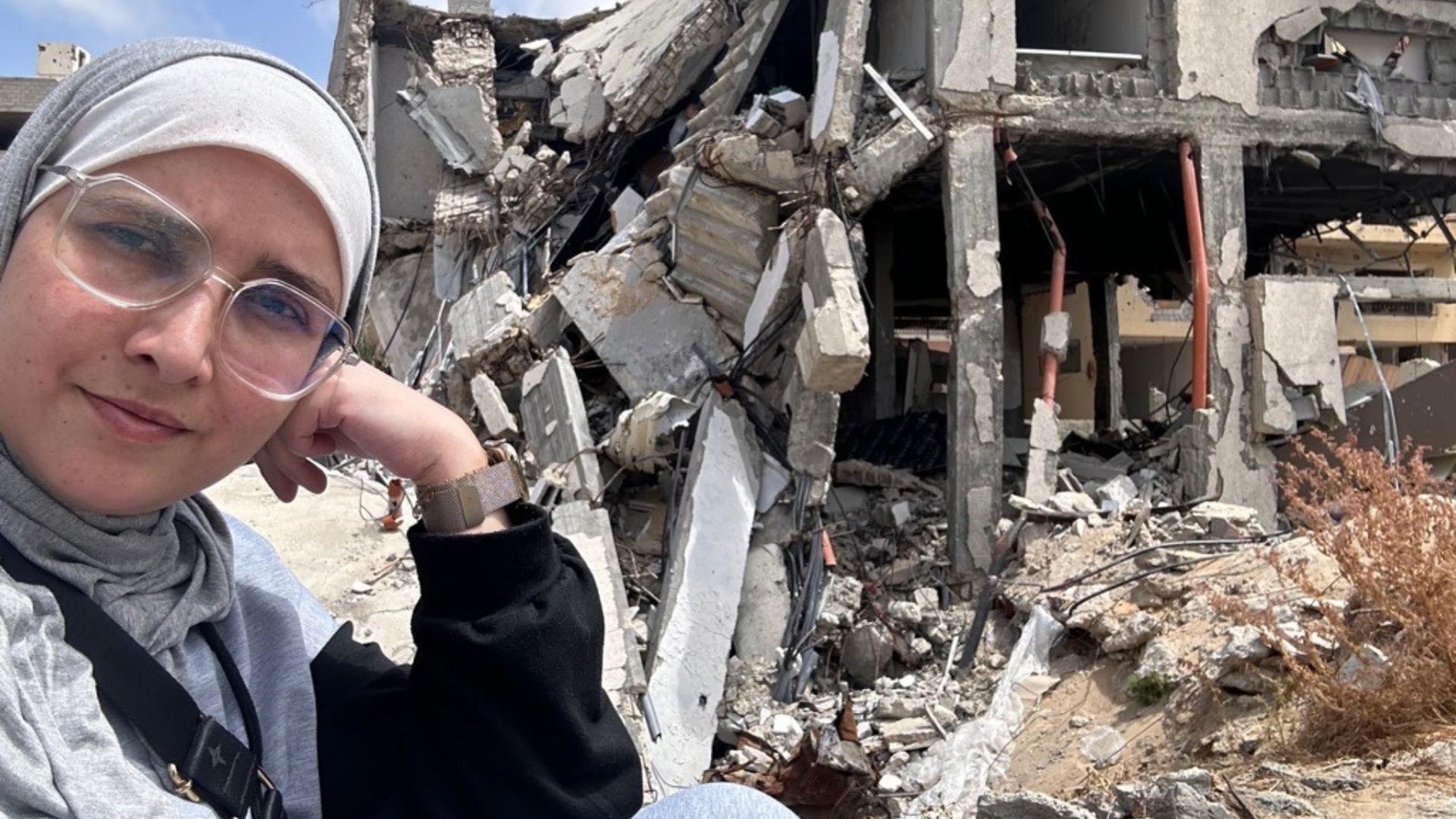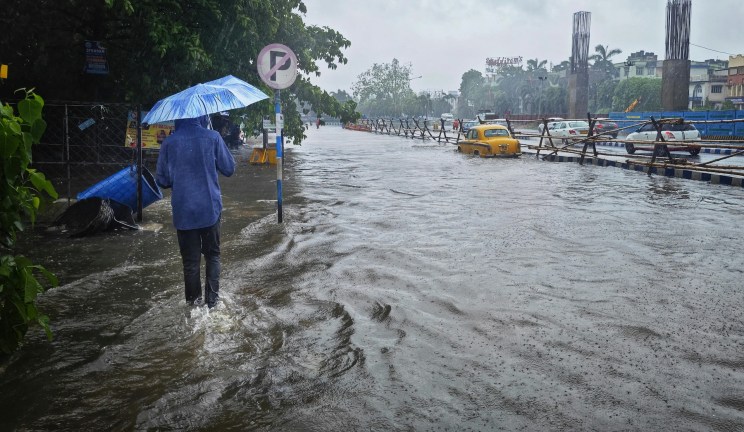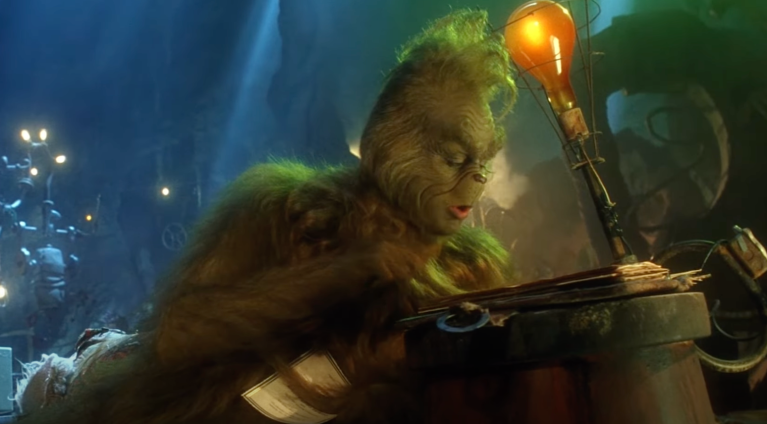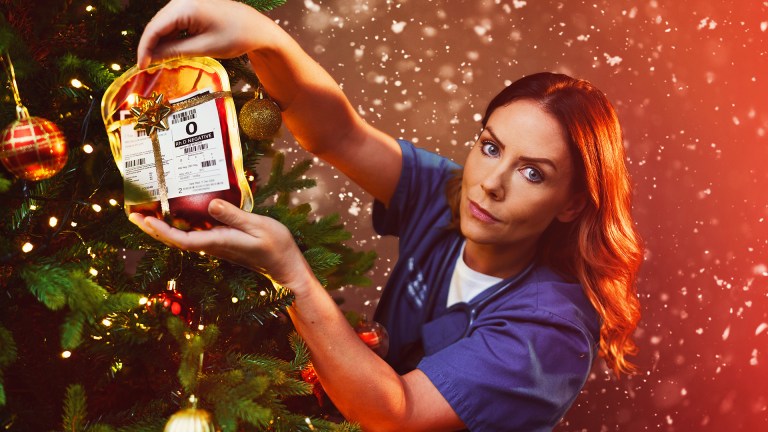My first humanitarian job was in 2008, the same year that we experienced the first large-scale hostilities in Gaza. Sixteen years later, the world around us burns again.
In all the escalations between then and now, I was always able to get out and help my people. This time, however, the tightened siege imposed on northern Gaza has confined me to a room in a rented house in Gaza City, where out of my window I can see piles of rubble and a blown-up building that was once someone’s home. The situation was difficult 16 years ago, it is inconceivable now.
So much has happened in the last year, but I still remember joining my colleagues at the Norwegian Refugee Council (NRC) online on 8 October to discuss our response to a potential emergency when, a few minutes into the meeting, my neighbourhood in Gaza City was bombed. At midnight, we received warnings from the Israeli military that the area was about to be turned into a military operations zone. We left home for my parents’ that night. Two days later, we were ordered to leave again. My house was bombed not long after, along with so many others in the area.
- I lost 200 members of my family to war in Gaza. I feel betrayed by the UK government
- I used to dream of being a doctor in the UK. Now I’m searching for ways to survive in Palestine
The first question was, ‘Why, what have we done?’ Since then, we’ve been displaced 10 more times. We fled on foot and under direct fire. Bullets flying. We only took with us the most essential and lightest things we could carry. We never thought that, for so many months, our only way to connect with the world and hear news would be through a battery-powered radio. It was like being in a cave, isolated from the rest of the world. Explosions were all we could hear. Gunpowder was all we could smell.
As each month passes, life is becoming ever more untenable in northern Gaza. We have been living under a siege imposed by Israel for 17 years, yet this is the first time we have come face-to-face with starvation. Without enough water, many come close to dying from dehydration. Fruits and vegetables are almost non-existent in markets in the north, so people rely on canned food. The prices in the market are astronomical: One kilogram of potatoes now costs around USD 80, and one box of 30 eggs is USD 107.
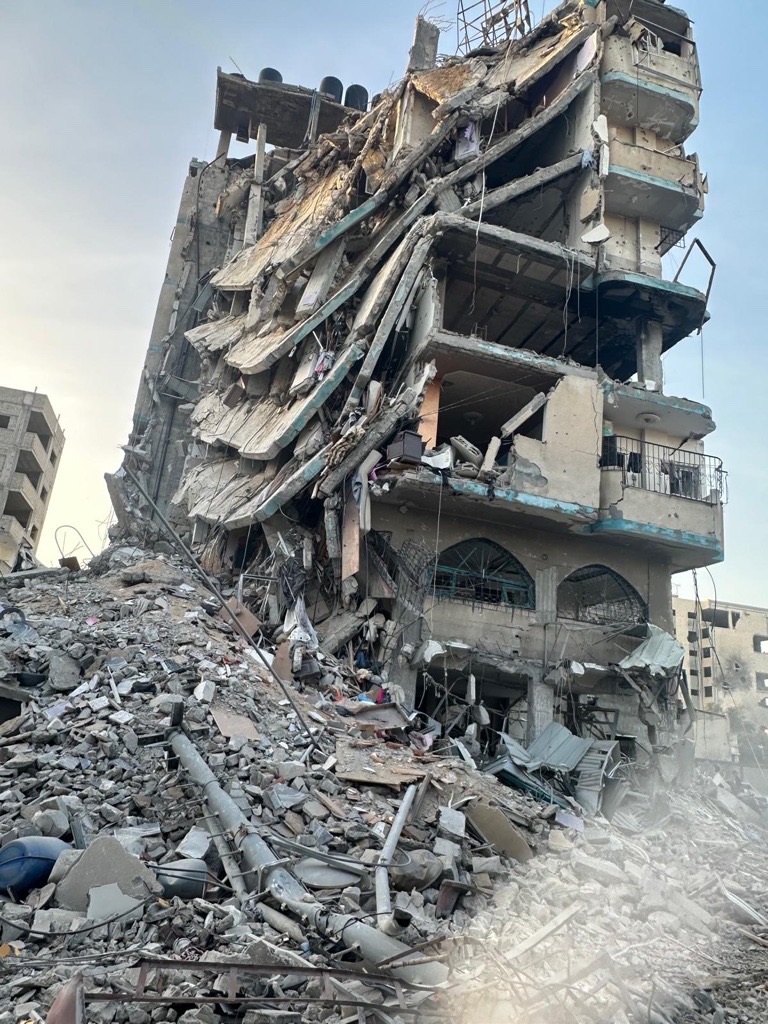
Parts of our days look borrowed from ancient times. We are left to improvise a form of life. In the morning, we collect firewood for cooking and bathing. Children queue up for long hours, trying to get hold of some water or a hot meal. Women spend most of their time making bread, hand-washing clothes, or preparing a meagre meal.
